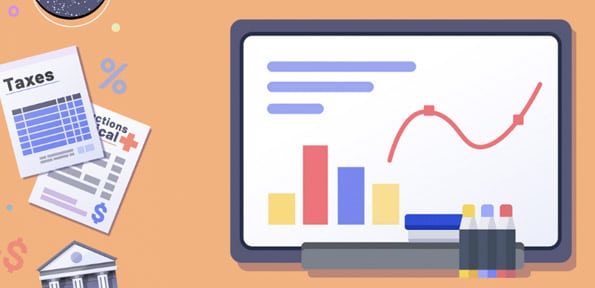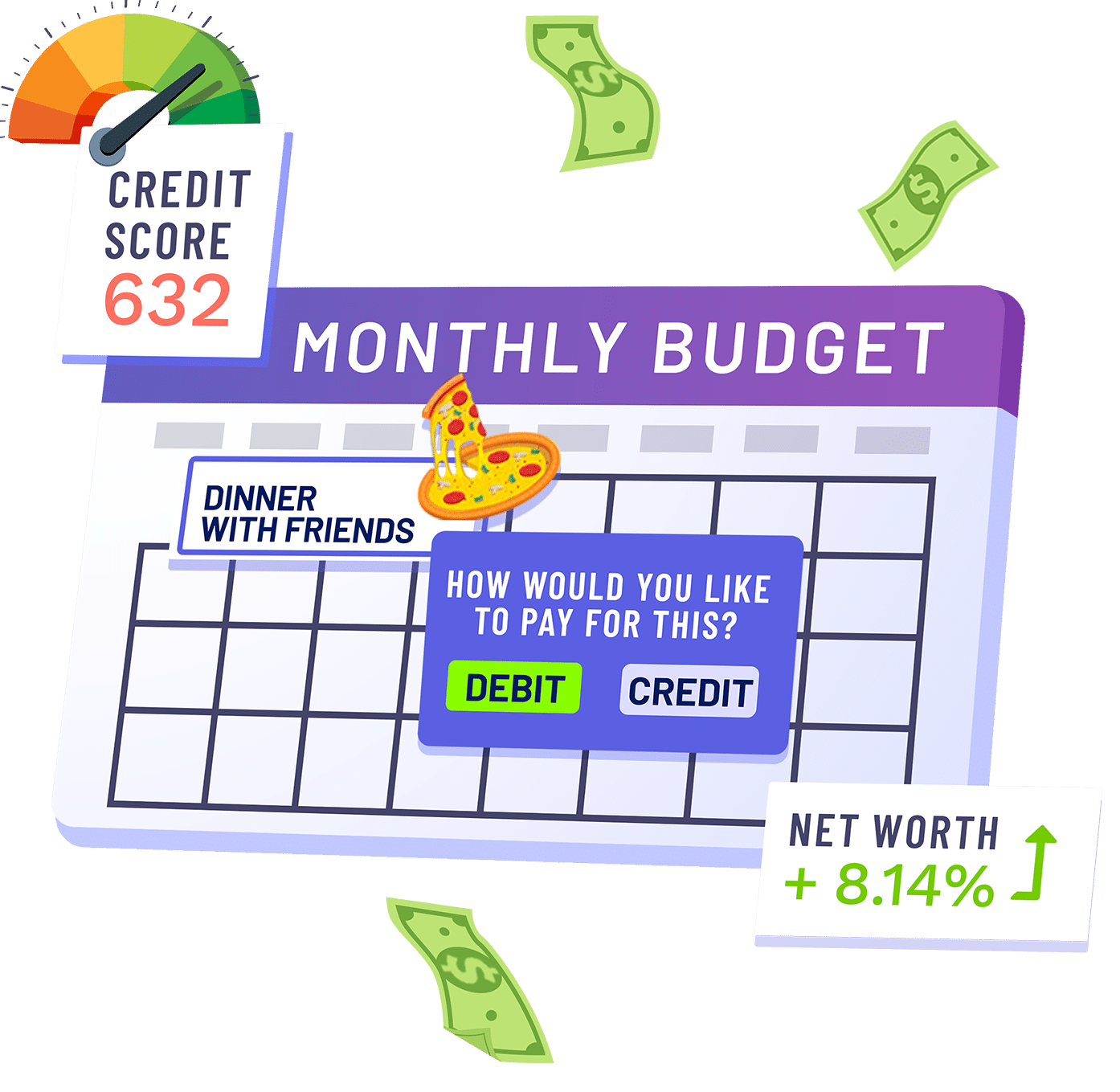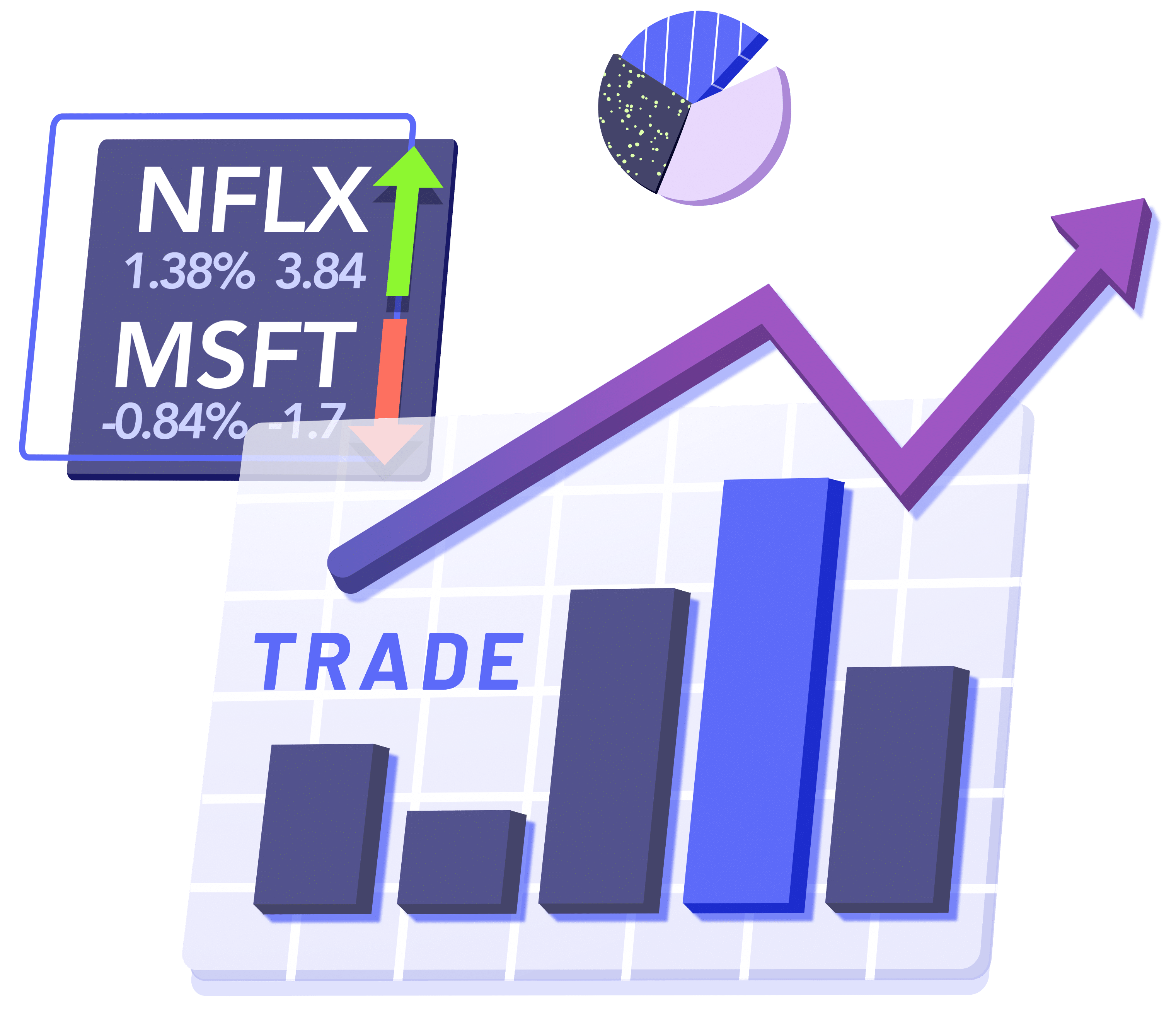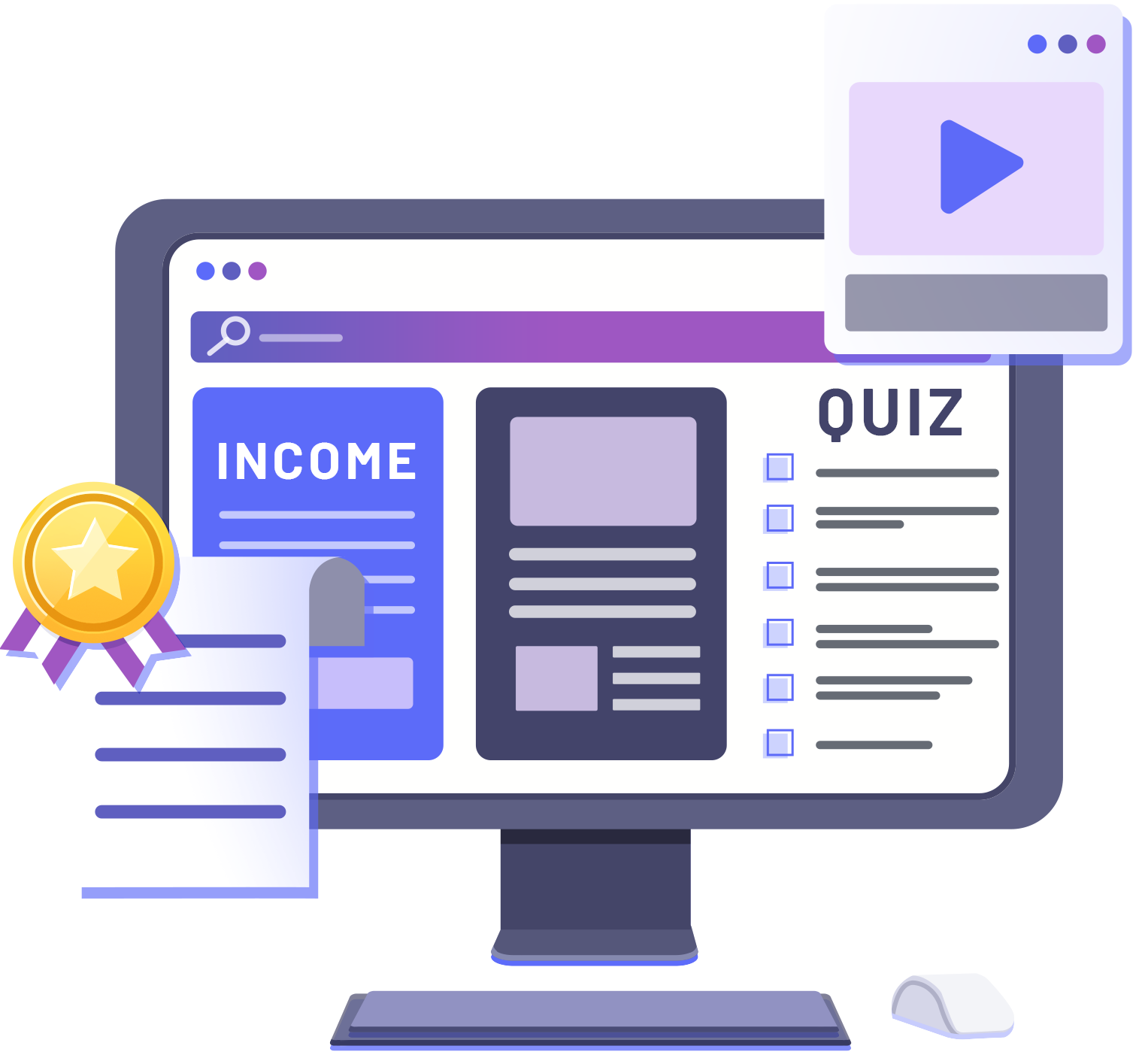| Analyze the role of cultural, social, and emotional influences on financial behavior. |
| | | | | |
| Evaluate the role of emotions, attitudes, and behavior in making financial decisions. |
Lesson – Budgeting
Lesson – Pay Yourself First
Lesson – Spending and Saving Plans |
| | | | |
| Recognize that individuals are responsible for their own financial decisions and for sebsequent positive and negative consequences. |
Budget Game – Core Component
Lesson – Pay Yourself First |
| | | | |
| Relate instant satisfaction and delayed gratification to impulse buying and planned expenditures. |
Budget Game – Core Component
Lesson – Budgeting and Spending Strategies
Lesson – Pay Yourself First
Lesson – Spending and Saving Plans |
| | | | |
| Describe the influence and social pressure and marketing strategies as related to purchased decisions. |
Lesson – Spending and Saving Plans |
| | | | |
| Explain how scarcity of financial resources affects wants and needs. |
Lesson – What is Scarcity?
Lesson – Opportunity Cost |
| | | | |
| Understand the law of supply and demand as a major economic force. |
Lesson – Supply and Demand Examples in the Stock Market
Lesson – What is Economics? |
| | | | |
| Understand command, market, and mixed economic systems. |
Lesson – Comparative Economic Systems – Capitalism, Socialism, and Communism |
| | | | |
| Discuss historic and current examples of each economic system and the effects on economic growth. |
Lesson – Comparative Economic Systems – Capitalism, Socialism, and Communism |
| | | | |
| Identify and define the types of financial risks, including inflation, deflation, and recession. |
Lesson – The Business Cycle
Lesson – Inflation
Lesson – Monetary Policy |
| | | | |
| Define a rational decision-making process and the steps of financial planning. |
Activity |
Long-Term Game |
Comprehensive Chapter |
Short Lesson |
Interactive Calculator |
Graded Assessment |
| Define opportunity cost (tradeoffs) and their role in decision making. |
Budget Game – Core Component
Lesson – Opportunity Cost |
| | | | |
| Describe a rational decision-making process. |
Lesson – Budgeting
Lesson – Importance of Planning and Vision |
| | | | |
| Identify short- and long-term financial decisions and the impact they have on financial planning. |
Budget Game – Core Component
Lesson – Planning for Long-Term Purchases
Lesson – Preparing for Retirement
Lesson – Preparing for Spending Shocks
Lesson – Building Wealth
Lesson – Family Planning |
| | | | |
| Define the elements of a financial plan. |
Budget Game – Core Component
Lesson – Budgeting and Spending Strategies
Lesson – Pay Yourself First
Lesson – Spending and Saving Plans |
| | | | |
| Explain how setting goals affect personal financial planning. |
Activity |
Long-Term Game |
Comprehensive Chapter |
Short Lesson |
Interactive Calculator |
Graded Assessment |
| Identify spending habits and their connection to personal financial values. |
Budget Game – Core Component |
| | | | |
| Identify and create short- and long-term financial goals. |
Budget Game – Core Component
Lesson – Planning for Long-Term Purchases
Lesson – Preparing for Retirement
Lesson – Preparing for Spending Shocks
Lesson – Building Wealth
Lesson – Family Planning |
| | | | |
| Identify various sources of income and specific employability skills. |
Activity |
Long-Term Game |
Comprehensive Chapter |
Short Lesson |
Interactive Calculator |
Graded Assessment |
| Identify sources of income such as, wages, commissions, investment icome, benefits, inheritance, and gifts. |
Lesson – Income and Compensation |
| | | | |
| Evaluate and compare career opportunities based on individual interests, skills, and educational requirements; the value of work to society; income potential; and the supply and demand of the workforce, including unemployment. |
Lesson – Career Development
Lesson – Work vs. Study
Lesson – Starting a Business
Lesson – Unemployment and other programs |
| | | | |
| Compare the risks and rewards of entrepreneurship/self-employment. |
Lesson – Starting a Business
Lesson – What is Entrepreneurship? |
| | | | |
| Compare income to the cost-of-living in various geographical areas and the impact it has on purchasing power. |
Budget Game – Core Component |
| | | | |
| Understand the effects of state-and federal taxes and the requirement to file, including income, filing status and dependency tax law, the differences between refundable credits, non-refundable credits, and adjustments, and the differences between gross and net income. |
Budget Game – Core Component
Lesson – Taxation Overview
Lesson – Tax Filing and the Form 1040
Lesson – Common Tax Deducations
Lesson – Common Tax Additions
Lesson – Sales Tax |
| | | | |
| Understand basic employment forms and processes, including W-2, W-4, I-9, and Form 1040. |
Lesson – Tax Filing and the Form 1040 |
| | | | |
| Understand and begin preparation for career and post-high school training. |
Activity |
Long-Term Game |
Comprehensive Chapter |
Short Lesson |
Interactive Calculator |
Graded Assessment |
| Recognize and explore the correlation between education, training, and potential lifetime income. |
Lesson – Career Development
Lesson – Work vs. Study
Lesson – Good Debt, Bad Debt
Lesson – Income and Compensation |
| | | | |
| Calculate the costs of post-high school training options and analyze the return on investment (ROI) based on career choices, including understanding the cost differences between public and private, and between nonprofit and for-profit education and training. |
Lesson – Student Loans
Lesson – Work vs Study
Lesson – How To Choose an Internship |
| | | | |
| Identify sources of funding to assist in post-high school education opportunities and the cost of repayment. |
Lesson – Student Loans
Lesson – Good Debt, Bad Debt |
| | | | |
| Understand the use and advantages of 529 plans and the benefit of planning early for paying for the cost of post-secondary education and training. |
Lesson – Student Loans |
| | | | |
| Understand the process for and benefits of FAFSA completion. |
Lesson – Student Loans |
| | | | |
| Identify components to be included on a resume and/or electronic professional profile, such as appropriate contact information; educational, work, and volunteer experience; skills; certificates obtained; accomplishments; interests; and references. |
Lesson – Biggest Mistakes of Job Seekers
Lesson – Acing Job Interviews
Lesson – Using Keywords In Your Resume |
| | | | |
| Identify sources and strategies for and benefits of networking for finding employment, whether for summer jobs or full-time career placement. |
Budget Game – Core Component
Lesson – Career Development |
| | | | |
| Describe and discuss financial institutions and demonstrate how to manage personal financial accounts. |
Activity |
Long-Term Game |
Comprehensive Chapter |
Short Lesson |
Interactive Calculator |
Graded Assessment |
| Explain the role of the Federal Reserve, the Federal Deposit Insurance Corporation (FDIC), and the National Credit Union Association (NCUA). |
Lesson – What is the Federal Reserve?
Lesson – Credit Cards
Lesson – Consumer rights and responsibilities |
| | | | |
| Compare the roles of financial institutions and their services, such as banks, credit unions, investment or brokerage firms, insurance companies, and loan agencies. |
Lesson – Banks, Credit Unions, and Savings and Loans |
| | | | |
| Demonstrate how to manage checking/debit and saving accounts, both manually and/or electronically, including reconciliation. |
Budget Game – Core Component
Lesson – Debit Cards
Lesson – Automatic Payments
Lesson – Reconciling Accounts |
| | | | |
| Describe available consumer banking technologies. |
Lesson – Banks, Credit Unions, and Savings and Loans |
| | | | |
| Explain the potential consequences of checking account mismanagement, such as non-sufficient funds (NSF) handling, overdraft processing, and the role of ChexSystems. |
Budget Game – Core Component
Lesson – Debit Cards
Lesson – Automatic Payments
Lesson – Reconciling Accounts |
| | | | |
| Discuss the dynamics of saving and investing. |
Activity |
Long-Term Game |
Comprehensive Chapter |
Short Lesson |
Interactive Calculator |
Graded Assessment |
| Explain how paying yourself first (PYF) early and often influences positive progress toward long-term financial goals. |
Budget Game – Core Component
Lesson – Pay Yourself First
Lesson – Building Wealth
Lesson – Preparing for Retirement
Activity – Use the Compound Interest Calculator |
| | | | |
| Identify and understand basic saving options such as savings accounts and Certificates of Deposit. Understand that savings are designed to preserve principal. |
Lesson – Building a Diversified Portfolio
Lesson – Investing Strategies
Investing101 Certification |
| | | | |
| Identify and understand investment options, including retirement planning, long- and short-term investments, and dividend reinvestment plans. Understand that investments put principal at risk. |
Stock Game – Core Component
Lesson – Building a Diversified Portfolio
Lesson – Investing Strategies
Lesson – Preparing for Retirement
Lesson – Planning Long-Term Purchases |
| | | | |
| Identfy types of long-term retirement investments, such as IRA, Roth IRA, 401(k), and 403(b), as well as reasons to invest. |
Lesson – Preparing for Retirement
Lesson – Why invest in Stocks?
Investing101 Certification |
| | | | |
| Understand the role of risk management in asset protection. |
Activity |
Long-Term Game |
Comprehensive Chapter |
Short Lesson |
Interactive Calculator |
Graded Assessment |
| Discuss the purposes of insurance/risk management. |
Lesson – Risk
Lesson – Health Insurance
Lesson – Car Insurance
Lesson – Renter’s Insurance |
| | | | |
| Define common insurance options and their purposes, such as automobile, health, homeowner/renter, whole/term life, long-term care and disability. |
Lesson – Health Insurance
Lesson – Car Insurance
Lesson – Renter’s Insurance
Lesson – Homeowner’s Insurance
Lesson – Life Insurance |
| | | | |
| Define terms of a basic insurance policy, such as contract, limits of coverage, premium, deductible, grace period, and lifetime limit. |
Lesson – Health Insurance
Lesson – Car Insurance
Lesson – Life Insurance |
| | | | |
| Discuss insurance needs at different stages of life. |
Lesson – Health Insurance
Lesson – Car Insurance
Lesson – Renter’s Insurance
Lesson – Homeowner’s Insurance
Lesson – Life Insurance |
| | | | |
| Understand identification and designation of beneficiaries. |
Lesson – Life Insurance |
| | | | |
| Identify and explain the process of budgeting based on calculated income. |
Activity |
Long-Term Game |
Comprehensive Chapter |
Short Lesson |
Interactive Calculator |
Graded Assessment |
| Develop a budget. |
Budget Game – Core Component
Lesson – Budgeting and Spending Strategies
Lesson – Pay Yourself First
Lesson – Spending and Saving Plans
Lesson – Budgeting |
| | | | |
| Identify and prioritize fixed, variable, and periodic budget categories. |
Budget Game – Core Component
Lesson – Budgeting |
| | | | |
| Emphasize the importance of proactive budget priorities, such as pay yourself first, emergency/opportunity fund, insurance, and charitable or other voluntary contributions. |
Budget Game – Core Component
Lesson – Budgeting
Lesson – Pay Yourself First
Lesson – Charitable Giving |
| | | | |
| Discuss the pros and cons of charitable giving. |
Lesson – Charitable Giving
Lesson – Spending and Savings Plans |
| | | | |
| List ways and examples of charitable giving. |
Lesson – Charitable Giving
Lesson – Spending and Savings Plans |
| | | | |
| Compare tools for tracking of a budget, income and expenditures, such as the envelope system, paper tracking, and online or software options. |
Budget Game – Core Component
Lesson – Financial Records and Receipts
Lesson – What are Financial Records?
Lesson – Reconciling accounts |
| | | | |
| Emphasize the importance of comparison shopping, buying strategies, negotiation, and sales and marketing strategies in purchasing. |
Lesson – Researching Spending
Lesson – Budgeting and Spending Strategies |
| | | | |
| Identify the process, rights, and responsibilities relating to renting, leasing, and purchasing a home. |
Lesson – Mortgages
Activity – Use the Home Budgeting Calculator |
| | | | |
| Identify the process, rights, and responsibilities relating to renting, leasing, and purchasing a vehicle. |
Lesson – Buying a Car
Activity – Use the Car Loans Calculator |
| | | | |
| Understand the similarities and differences between “principal” and “interest” on an amortization schedule. |
Lesson – The Importance of Interest Rates
Activity – Use the Credit Card Payments Calculator |
| | | | |
| Describe and discuss the impact of credit and debt on personal money management. |
Activity |
Long-Term Game |
Comprehensive Chapter |
Short Lesson |
Interactive Calculator |
Graded Assessment |
| Discuss the purpose and role of credit and explain the value of building and maintaining a healthy credit rating, including elements of creditworthiness: character, capacity, capital, collateral, and conditions. |
Budget Game – Core Component
Lesson – Using Credit
Lesson – Credit Rating
Lesson – Credit Cards |
| | | | |
| Explore and discuss the pros and cons of basic types of credit, such as unsecured vs, secured credit, credit cards, installment loans, revolving credit, student loans, and predatory lenders. |
Lesson – Short-Term Financing
Lesson – Good Debt, Bad Debt
Lesson – Using Credit |
| | | | |
| Describe the risks and responsibilities associated with using credit, such as APR, grace period, late fees, finance charges, default rates, interest, and closing costs. |
Budget Game – Core Component
Lesson – Credit Cards
Lesson – Using Credit |
| | | | |
| Understand principal and interest calculations. |
Budget Game – Core Component
Lesson – The Importance of Interest Rates
Activity – Use the Credit Card Payments Calculator |
| | | | |
| Calculate how long it takes to repay debt by making minimum payments on installment loans and revolving accounts. |
Budget Game – Core Component
Lesson – The Importance of Interest Rates
Activity – Use the Credit Card Payments Calculator |
| | | | |
| Locate and use online calculators to determine how principal and interest aggregate monthly for long-term debt such as mortgages, vehicles, personal loans, and credit cards. |
Activity – Use the Car Loans Calculator
Activity – Use the Credit Card Payments Calculator
Activity – Use the Home Budgeting Calculator
Activity – Use the Buy vs Lease Calculator |
| | | | |
| Evaluate the costs and risks of payday and predatory lending. |
Lesson – Good Debt, Bad Debt
Lesson – Short-Term Financing |
| | | | |
| Describe the personal and societal effects of bankruptcy and identify circumstances that lead to bankruptcy, such as uninsured medical costs, family break-up, or loss of job. |
Lesson – Bankruptcy
Lesson – Managing Debt |
| | | | |
| Explain and understand credit reports and scores. |
Activity |
Long-Term Game |
Comprehensive Chapter |
Short Lesson |
Interactive Calculator |
Graded Assessment |
| Identify the three major credit bureaus. |
Lesson – Credit Reports |
| | | | |
| Understand the legal right to a free annual credit report (AnnualCreditReport.com). |
Lesson – Credit Reports |
| | | | |
| Evaluate and identify components of a credit report, including derogatory remarks, and the warning signs of credit abuse, such as late fees, missed payments, collection notices, and bounced checks. |
Lesson – Credit Reports |
| | | | |
| Define rights and responsibilities of buyers and sellers under consumer protection laws. |
Activity |
Long-Term Game |
Comprehensive Chapter |
Short Lesson |
Interactive Calculator |
Graded Assessment |
| Understand financial contracts tied to consumer purchases, such as cell phone, cable or satellite plans, and membership fees. |
Lesson – What makes a contract valid?
Lesson – Consumer rights and responsibilities |
| | | | |
| Discuss the negative impacts of predatory and payday lending practices. |
Lesson – Good Debt, Bad Debt
Lesson – Short-Term Financing |
| | | | |
| Identify ways to avoid identity theft and fraud, such as securing sensitive financial data, using care when participating in online commerce, avoiding phishing and pharming, and properly disposing of sensitive documents. |
Lesson – Protecting Against Fraud
Lesson – What are Financial Records? |
| | | | |
| Understand how to recover from fraud and identity theft. |
Lesson – Protecting Against Fraud |
| | | | |
| Discuss ways to avoid financial schemes such as Ponzi schemes and other questionable and illegal practices. |
Lesson – Protecting Against Fraud |
| | | | |
| Describe the negative consequences of gambling and playing the lottery. |
Investing101 Certification |
| | | | |
| Identify the pros and cons on online commerce, including how to conduct transactions safely. |
Lesson – Budgeting and Spending Strategies
Lesson – Consumer rights and responsibilities |
| | | | |
| Understand the role of government in protecting the consumer. |
Activity |
Long-Term Game |
Comprehensive Chapter |
Short Lesson |
Interactive Calculator |
Graded Assessment |
| Explain the purposes and features of consumer protection laws. |
Lesson – Consumer rights and responsibilities |
| | | | |
| Identify federal and state entities that exist to protect consumers from forms of fraud and abuse. |
Lesson – Consumer rights and responsibilities
Lesson – Credit Cards
Lesson – Protecting Against Fraud |
| | | | |












